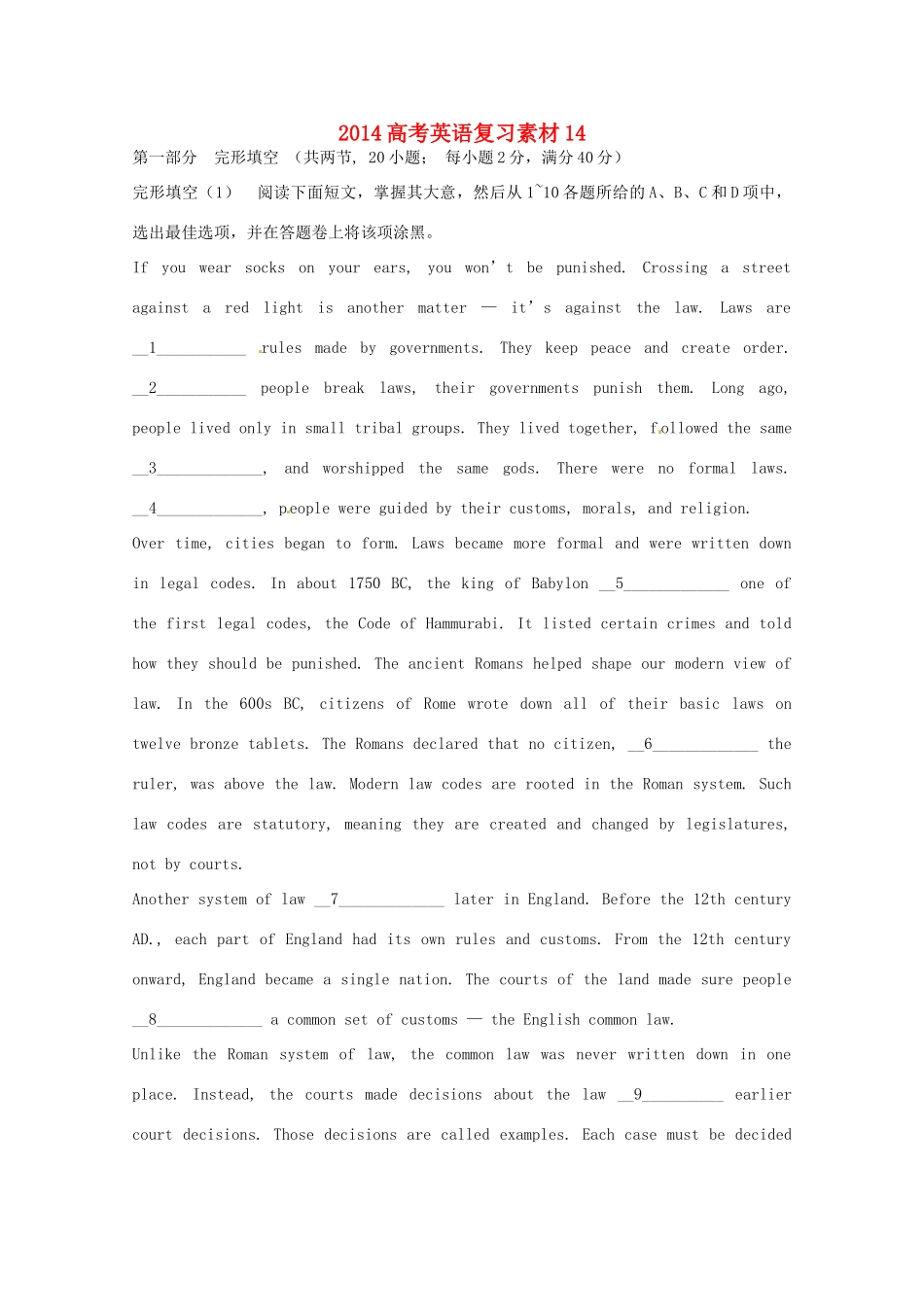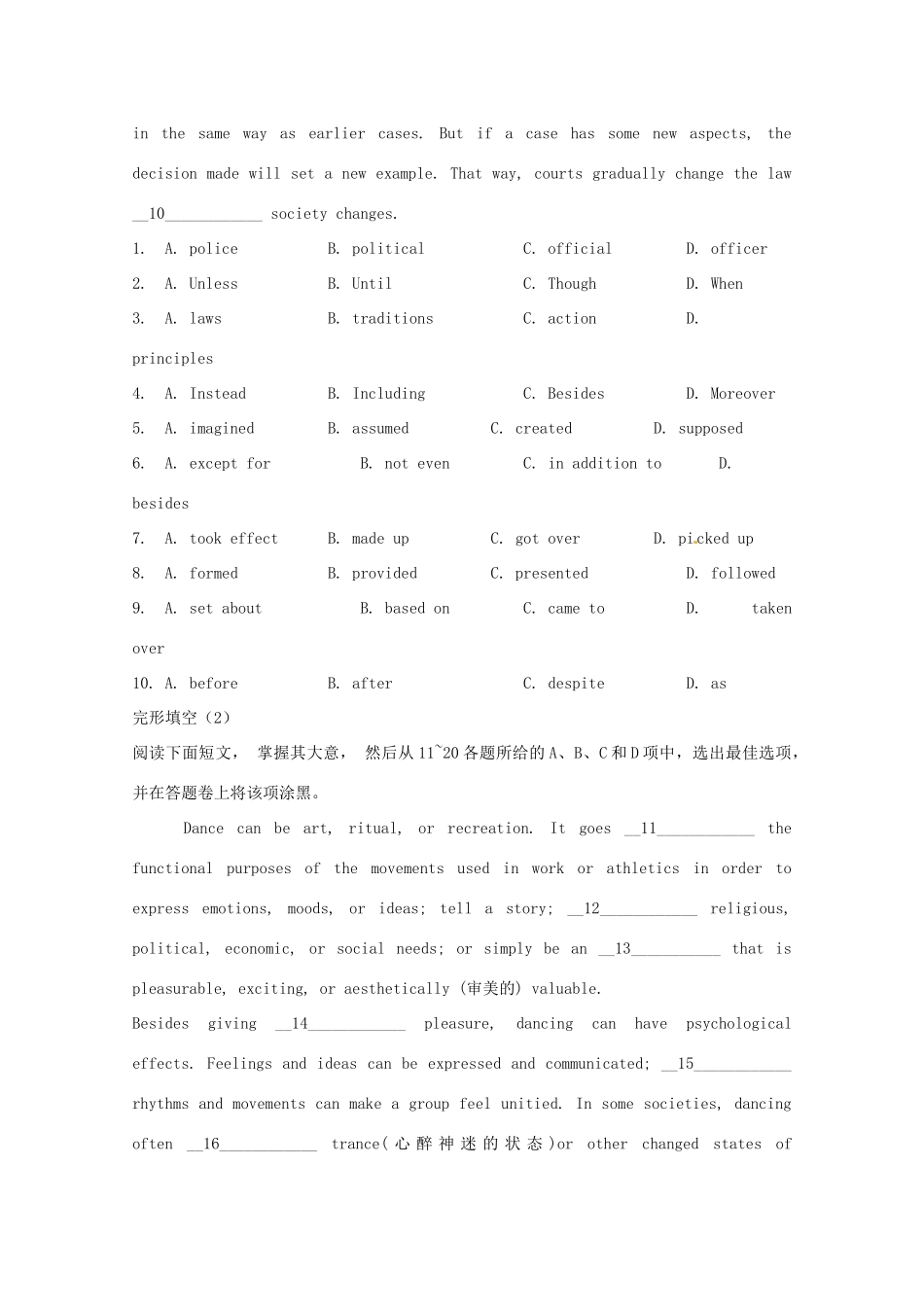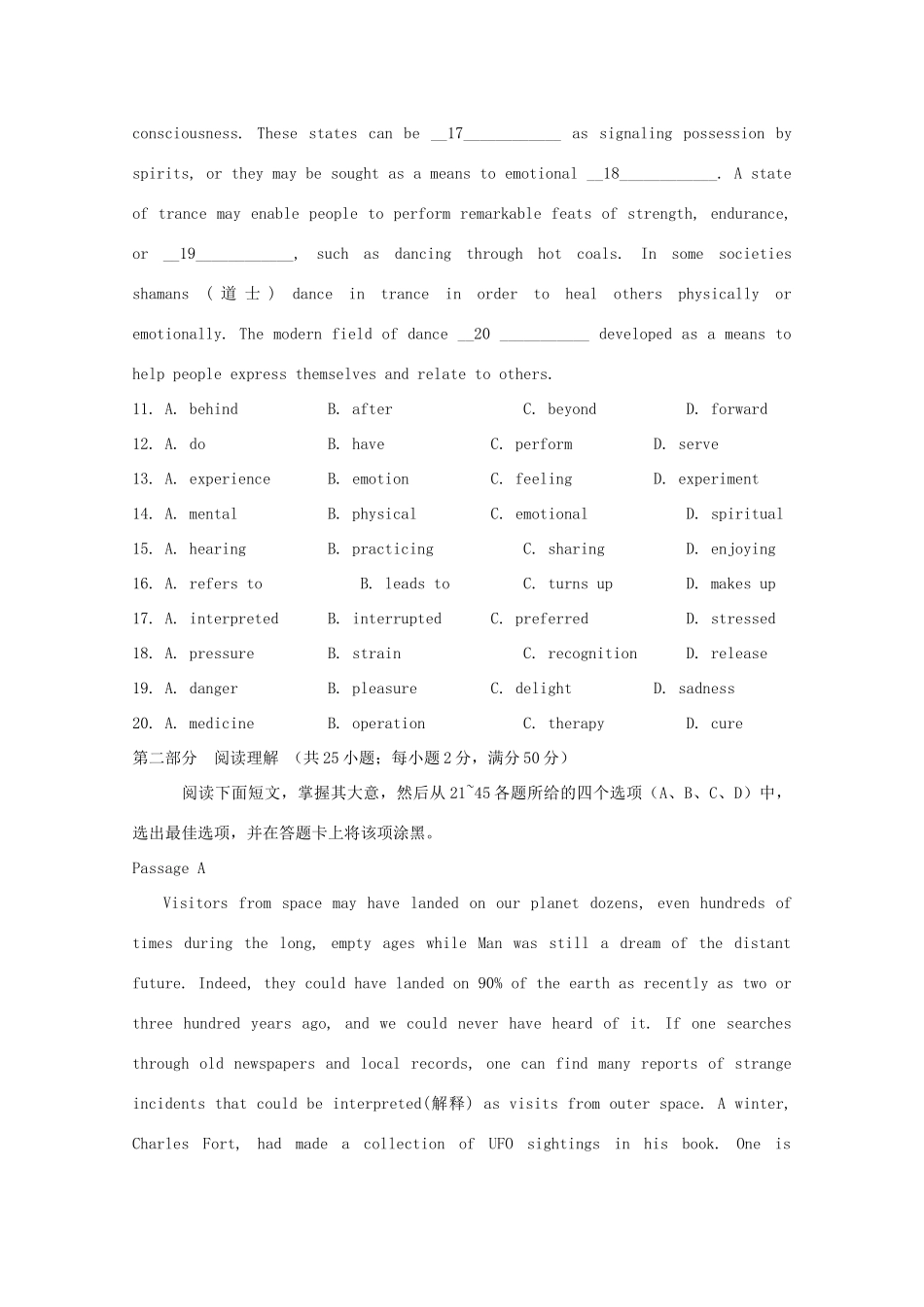2014 高考英语复习素材 14第一部分 完形填空 (共两节, 20 小题; 每小题 2 分,满分 40 分)完形填空(1) 阅读下面短文,掌握其大意,然后从 1~10 各题所给的 A、B、C 和 D 项中,选出最佳选项,并在答题卷上将该项涂黑。If you wear socks on your ears, you won’t be punished. Crossing a street against a red light is another matter — it’s against the law. Laws are __1___________ rules made by governments. They keep peace and create order. __2___________ people break laws, their governments punish them. Long ago, people lived only in small tribal groups. They lived together, f ollowed the same __3_____________, and worshipped the same gods. There were no formal laws. __4_____________, people were guided by their customs, morals, and religion.Over time, cities began to form. Laws became more formal and were written down in legal codes. In about 1750 BC, the king of Babylon __5_____________ one of the first legal codes, the Code of Hammurabi. It listed certain crimes and told how they should be punished. The ancient Romans helped shape our modern view of law. In the 600s BC, citizens of Rome wrote down all of their basic laws on twelve bronze tablets. The Romans declared that no citizen, __6_____________ the ruler, was above the law. Modern law codes are rooted in the Roman system. Such law codes are statutory, meaning they are created and changed by legislatures, not by courts. Another system of law __7_____________ later in England. Before the 12th century AD., each part of England had its own rules and customs. From the 12th century onward, England became a single nation. The courts of the land made sure people __8_____________ a common set of customs — the English common law.Unlike the Roman system of law, t...


